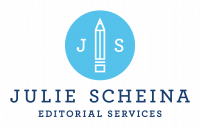Writing and publishing easily lend themselves to metrics: words written, queries submitted, books published, copies sold, reviews received, and on and on. And in general, I like metrics. I like knowing how many books I read, how many manuscripts I edit, how many miles I run, and many of the other daily metrics my phone is eager to notify me about.
Like a lot of people, over the past few weeks I’ve been thinking about my goals for the coming year. Usually those goals include improving some of the metrics I track: reading more books, editing more manuscripts, running more miles. But recently I heard some advice that convinced me to approach my goals differently—and it came in the form of a cycling class with Christine D’Ercole.
This class fell in the final week of a six-week cycling program; at the end of the six weeks, I was supposed to retest my cycling metrics and, theoretically, see them improve. I’d really enjoyed the program, but even though I’d dutifully taken every class, I’d started to dread the retest. Or more accurately, I dreaded the idea of retaking the test and not seeing my numbers improve. I started Christine’s class feeling distracted and trying to talk myself out of taking the test at all.
But Christine’s class helped change my perspective. During her class, Christine talked about the upcoming test and how our physical performance, like all aspects of life, exists on a continuum. If we expect our performance to continually increase, we’re going to feel like a failure when it inevitably doesn’t—even though everyone needs periods of recovery to rest, reset, and avoid injury and burnout. Instead of approaching these tests with fear and anxiety, Christine encouraged us to approach them with a sense of curiosity, of wondering what we could achieve that day instead of fearing how we might fall short.
The idea of cultivating curiosity really resonated with me. If there’s one thing that children’s books have taught me, it’s the importance of being curious! Yet I’d never thought of trying to be curious about my own goals.
The idea stuck in my head, and over the next few days, I thought of more and more examples of times when I’d approached my goals with judgement, as well as times when I’d instinctively approached them with curiosity. What struck me more than whether I ultimately met those goals was how different I felt during the weeks and months when I was trying to achieve them. Having a sense of curiosity helped me to be aware of what I was learning at each stage; it was much easier to focus on and enjoy the process when I wasn’t constantly worrying about missteps or whether I’d fall short at the end.
So while I still like metrics and won’t be throwing away my phone anytime soon, this year I’m trying to approach those numbers with more curiosity and less judgement. If you’re setting writing goals or thinking about last year’s goals, perhaps you’ll join me in trying this approach. Like me, you might find that changing your perspective helps you to find more joy in the process, rather than allowing it to be overshadowed by the end goal.
Your Editor Friend,
Julie
